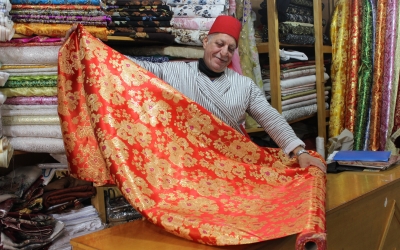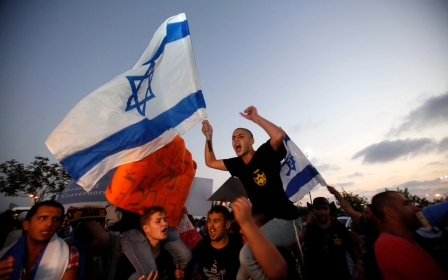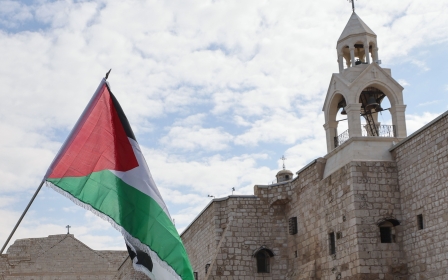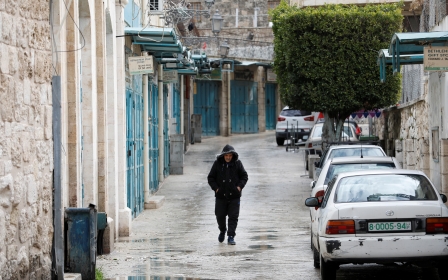Jerusalem churches accuse Israel of discrimination and warn of Christian decline
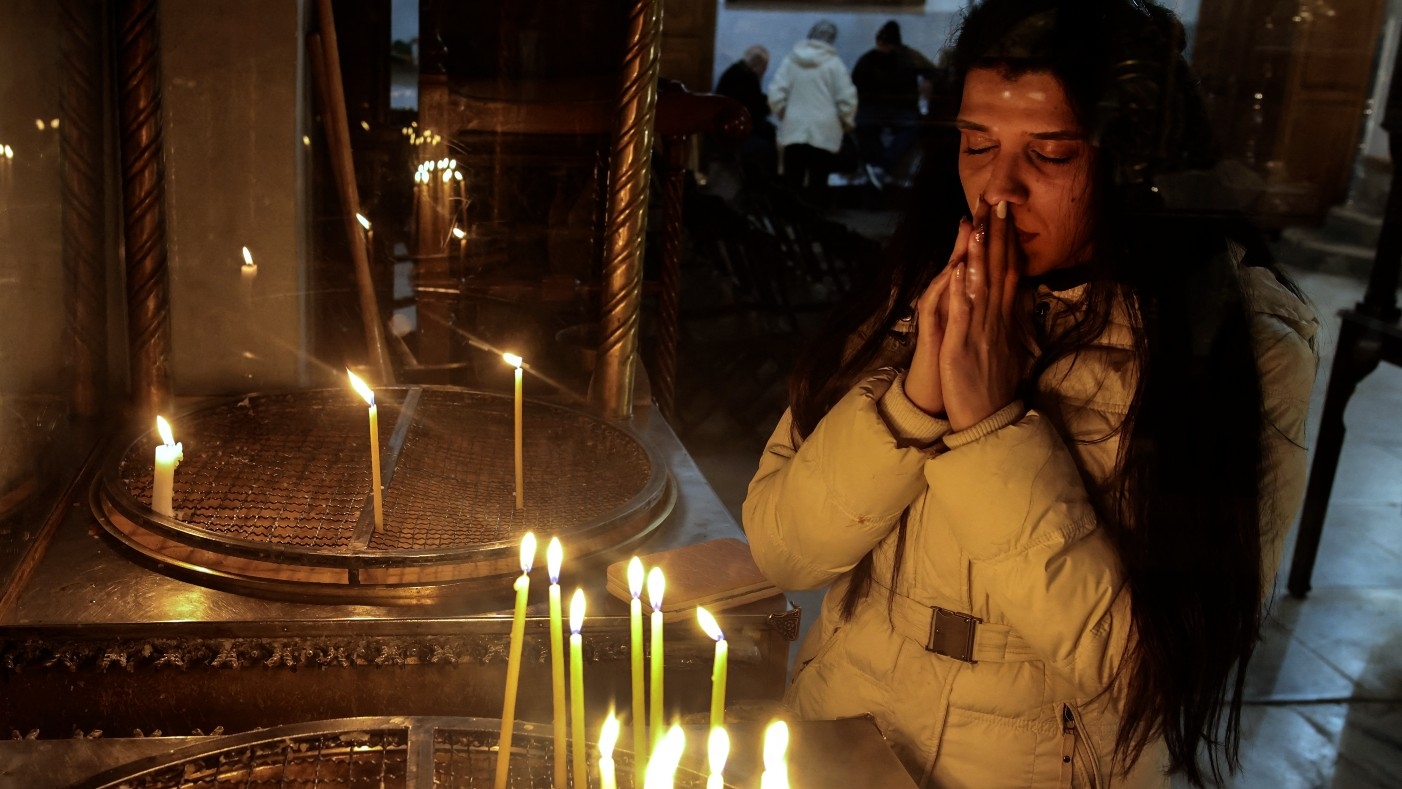
Palestinian Christians have criticised Israel for hindering the Christmas season and discriminating against them, saying they feel their presence is under threat in occupied East Jerusalem, the West Bank, and Israel.
The patriarchs and heads of churches in Jerusalem issued a statement last week, saying that "Christians have become the target of frequent and sustained attacks by fringe radical groups", referring to Israeli far-right activists.
'Christians have become the target of frequent and sustained attacks by fringe radical groups'
- Patriarchs and heads of churches in Jerusalem
They said that since 2012, "countless incidents" of verbal and physical attacks have been recorded against priests and that some churches were "vandalised and desecrated", deepening the fears Palestinian Christians have over their safety.
"These tactics are being used by such radical groups in a systematic attempt to drive the Christian community out of Jerusalem and other parts of the Holy Land," the statement said, referring to Palestine and Israel.
New MEE newsletter: Jerusalem Dispatch
Sign up to get the latest insights and analysis on Israel-Palestine, alongside Turkey Unpacked and other MEE newsletters
Churches burned
Since 2015, far-right Israeli activists have attacked several churches in Israel and Palestine.
Some Israeli figures close to the growing Religious Zionism political movement, which has four MPs, have been outspoken about banning Christmas and said that churches are places of worshipping idols, calling for their destruction.
The Church of the Multiplication on the Sea of Galilee suffered from an arson attack in 2015 at the hands of an Israeli far-right group.
Last December, an Israeli man attempted to set fire to East Jerusalem's historic Gethsemane Church, also known as the Church of All Nations, before being arrested.
Arson attacks are a common tactic used by Israeli settlers against Palestinians in the occupied West Bank and East Jerusalem. Other settler attacks include spraying racist graffiti, smashing windows, and slashing tyres.
The patriarchs and heads of churches said that Israeli "radical groups continue to acquire strategic property in the Christian Quarter [in Jerusalem's Old City] in the aim of diminishing the Christian presence".
Theirs is not the first such warning in recent days.
In a joint op-ed in the British newspaper the Sunday Times, Justin Welby, the archbishop of Canterbury, and Hosam Naoum, the Anglican archbishop of Jerusalem, warned of the decline of Christian presence in Palestine caused by Israeli-far right groups' attempts to drive them out.
They noted that a century ago, there were an estimated 73,000 Palestinian Christians in what was then Mandatory Palestine, making up 10 percent of the population. In contrast, they said, in 2019 just 2 percent of Israel and Palestine's population are Christian and only 2,000 Palestinian Christians live in the Old City of Jerusalem.
"It is for this reason that when you speak with Palestinian Christians in Jerusalem today you will often hear this cry: 'In 15 years’ time, there’ll be none of us left!'," they wrote.
Israeli settler groups, often encouraged by the authorities, continue to force Palestinians - Muslim or Christian - from their homes in Jerusalem neighbourhoods such as Sheikh Jarrah, Silwan, Batn al-Hawa, and Wadi Hilweh, as well as the Old City.
Fifth lockdown
Last week, Israel banned foreigners from entering the country until 29 December, following the spread of the new Covid-19 variant, Omicron.
The ban also included Christian pilgrims who were expected to visit the holy sites in East Jerusalem, Bethlehem, and Nazareth.
However, the step has been criticised by Palestinian Christian figures, who said that the Israeli government has discriminated against them while allowing young Jews to visit Israel as part of the "Birthright" programme, which offers free tours to Jewish youth from the diaspora.
'When you speak with Palestinian Christians in Jerusalem today you will often hear this cry, "in 15 years’ time, there’ll be none of us left!"'
- Justin Welby, archbishop of Canterbury, and Hosam Naoum, Anglican archbishop of Jerusalem
Wadie Abunassar, a spokesman and adviser to churches in the Holy Land, wrote on Facebook that Israel's decision to bar entry for thousands of fully vaccinated Christian pilgrims at the time of Christmas was met with "diapproval" while allowing Jewish groups to visit the country during a fifth lockdown.
"I have consulted legal advisors and they told me that this is illegal moral discrimination. We can't accept this racist discrimination at all. I urge the Israeli authorities to treat all those who want to visit the country equally without any discrimination between religion," Abunassar wrote.
An estimated 10,000 Christian pilgrims were expected to visit Palestine and Israel during the Christmas season. But trips have been called off.
The West Bank city of Bethlehem, where Jesus is believed to have been born, has been hit hard by the pandemic, and its hospitality sector is experiencing a second Christmas without tourists.
Bethlehem was the first Palestinian city to impose lockdown in March 2020 when Covid-19 cases were detected among tourists. It is surrounded by Israel's separation wall and military checkpoints, which cut it from the cities of Jerusalem and Hebron.
In a move to mitigate a crash in the tourism sector in Bethlehem, the Palestinian Authority (PA) has offered hospitality workers in the city a one-time stipend of 700 shekels ($224).
The hotels in Bethlehem are empty of foreign tourists and pilgrims due to Israeli border restrictions to tackle the spread of Covid-19.
Welby and Naoum wrote that Palestinian Christians are living "a historic tragedy unfolding in real time".
Middle East Eye delivers independent and unrivalled coverage and analysis of the Middle East, North Africa and beyond. To learn more about republishing this content and the associated fees, please fill out this form. More about MEE can be found here.


